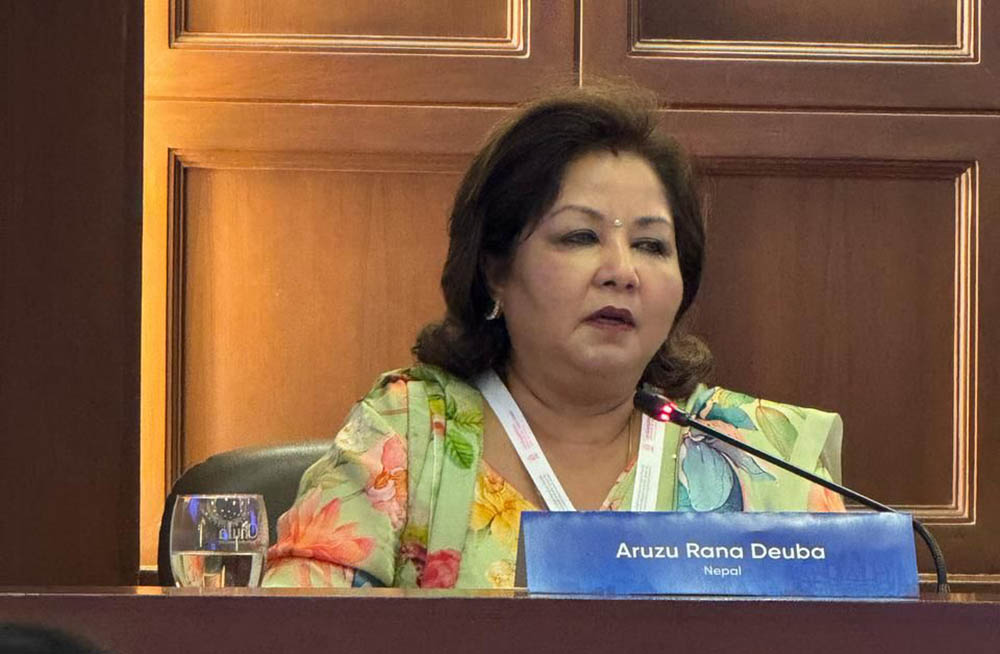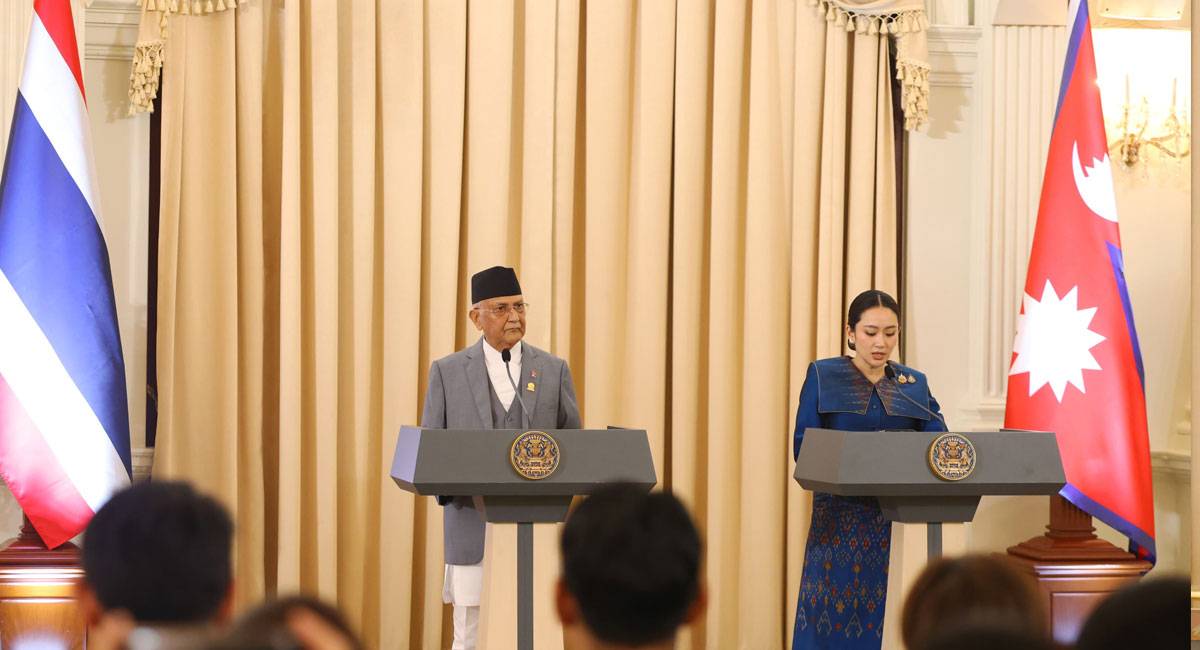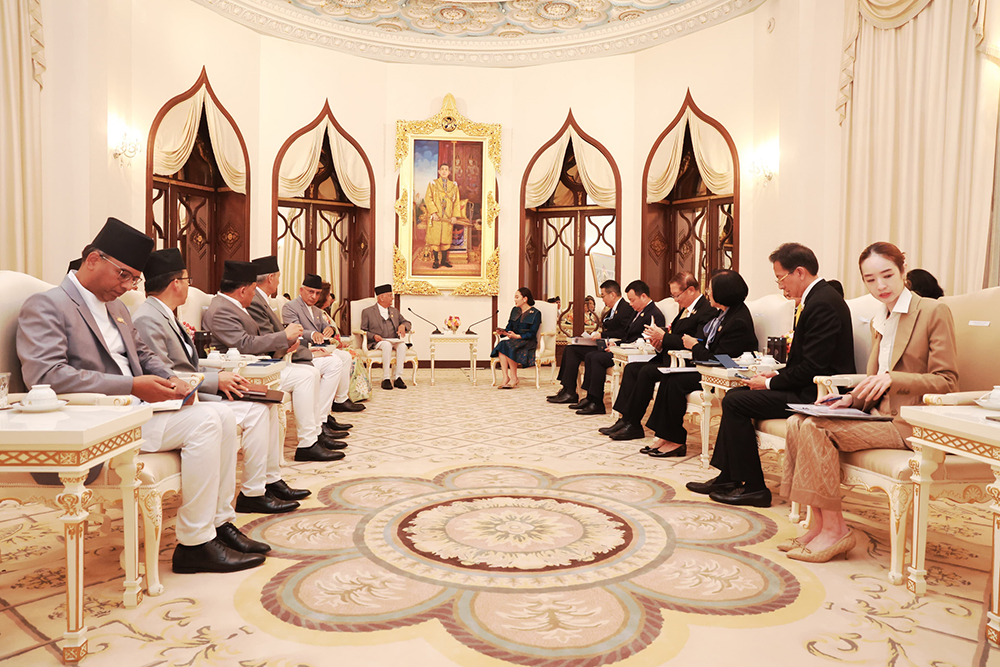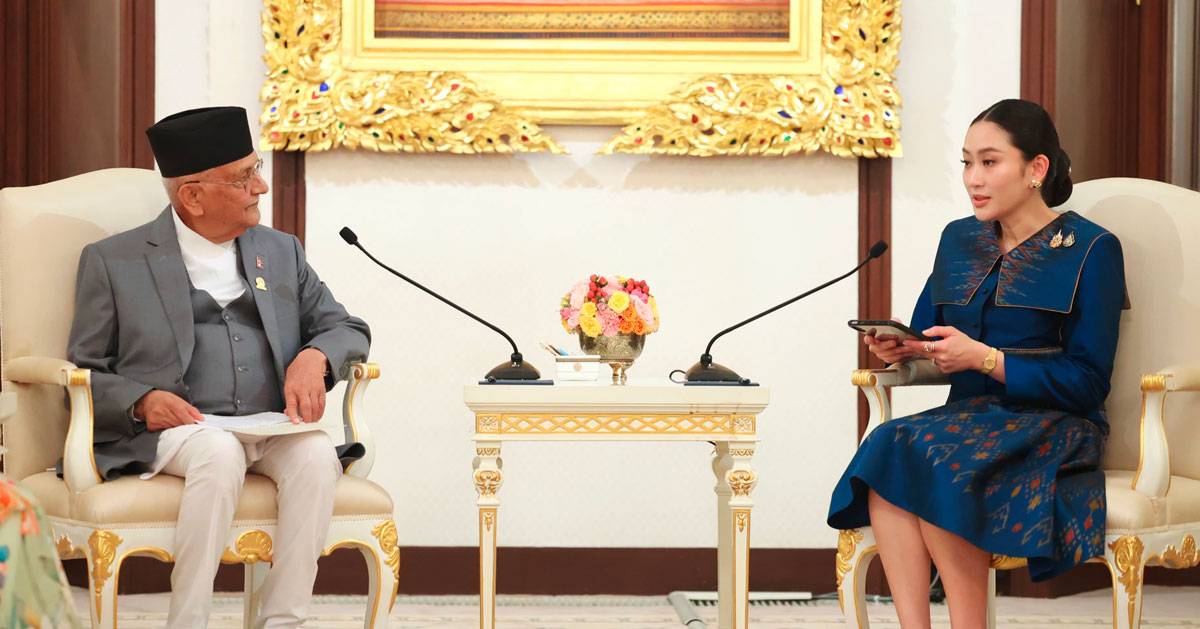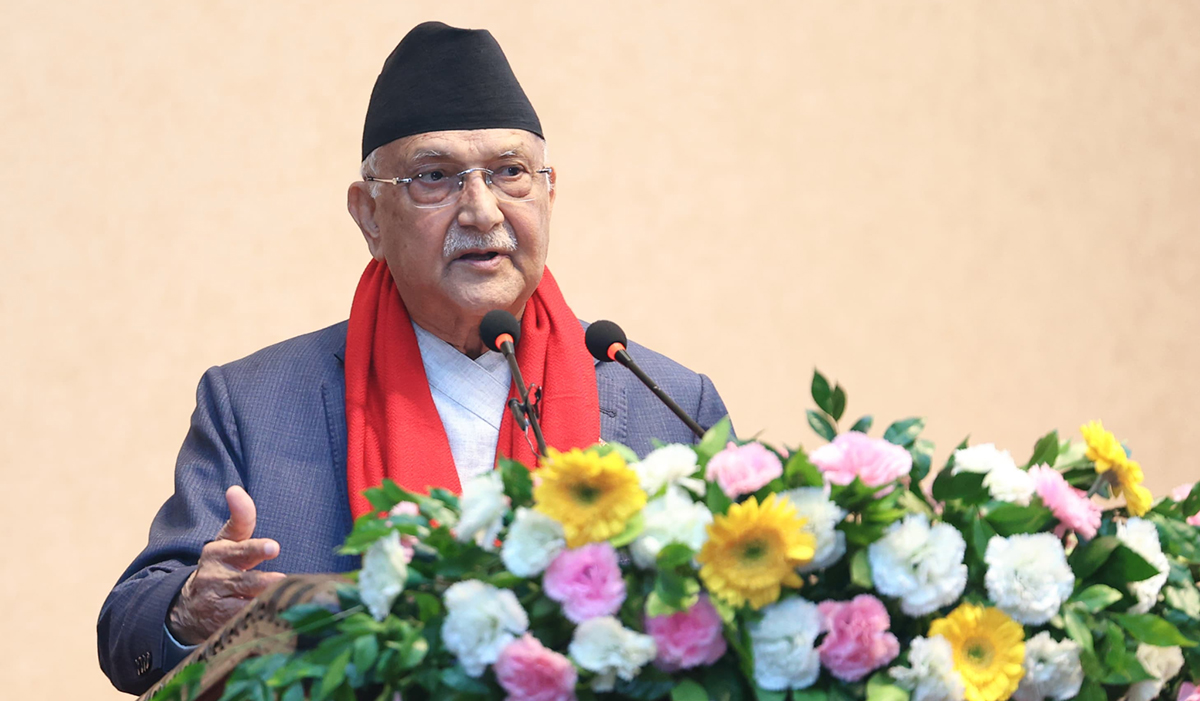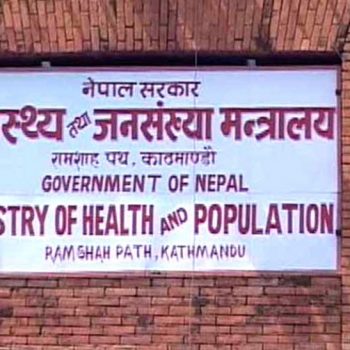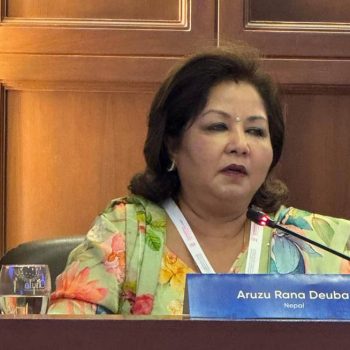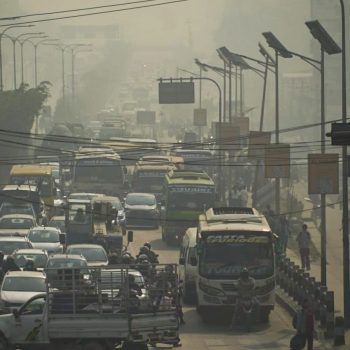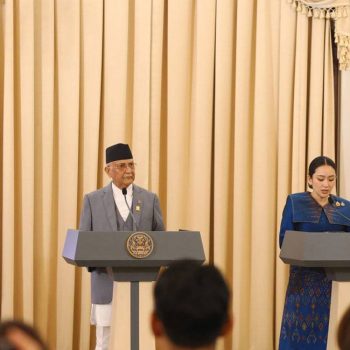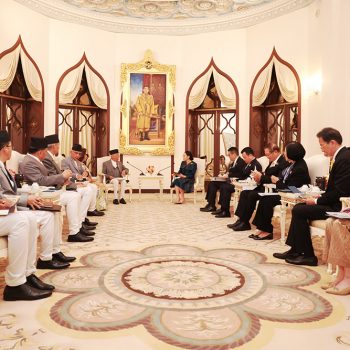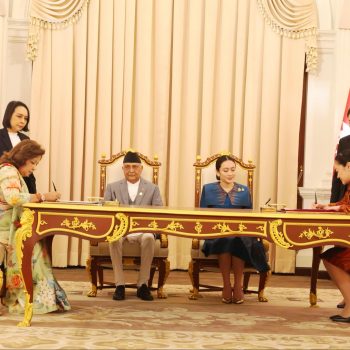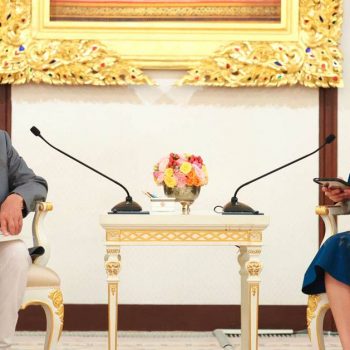MCC stuck in clutches of the Parliament, 3 billion already spent amidst dilemma of being passed
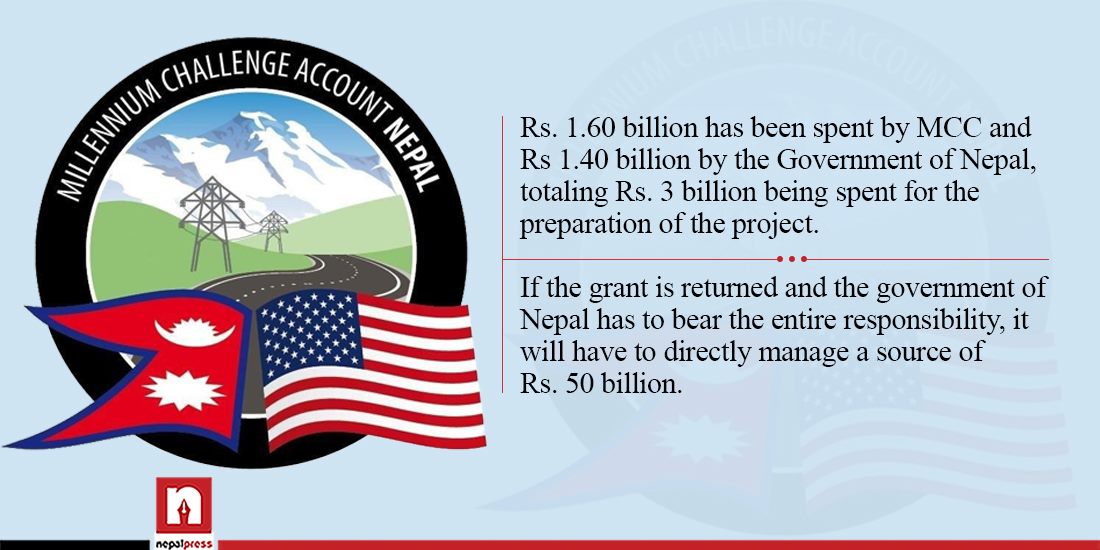
KATHMANDU: The MCC, which is the biggest grant coming to Nepal so far, is facing political wrath within the country. Even though the project was scheduled to be approved by the parliament last year, no agreement has been reached between the parties yet.
The date for approval of the MCC by the parliament was set on 28th April of the last fiscal year. However, the bill could not be introduced in the parliament after the then ruling party, the Communist Party of Nepal, politicized the issue.
In a speech, Prime Minister KP Sharma Oli expressed dissatisfaction with Speaker Agni Sapkota for blocking the MCC from being tabled. He also accused the Speaker of violating the constitution, saying that the bill introduced by the government should be tabled as per the constitution. Speaker Sapkota has not spoken publicly on the issue.
Chief Executive Officer of MCA Nepal Khadga Bahadur Bista says that such a large financial grant has been dragged into unnecessary controversy.
“The project has been moving forward since 2011 on the basis of consensus reached by political parties and governments. The government of Nepal has the right to inform and dismiss if there is a threat to the national interest and sovereignty,” he said.
Some politicians and experts are of the opinion that the project should be passed with amendments. MCA Nepal has informed that MCA is ready to hold necessary discussions for this, but also says the project is in Nepal’s interest, economic development and prosperity. CEO Bista expressed concern over the extension of ‘entry into force’ as it was already one year late to start the project.
“In my opinion, the MCC is positive on the contentious issue, so it seems that MCC will be passed through the next budget session of the parliament,” he said.
Work continues even though agreement is still stalled
The project aims to upgrade the 315 km long 400 KV transmission line and about 100 km of roads with an investment of USD 500 million by MCC and Rs. 13 billion by the Government of Nepal.
Although the MCC project has not been approved by the political parties, the Ministry of Finance has been allocating budget every year. Preparatory work of this project has been completed. Some of the works have been affected due to the return of technical consultants of MCC project to their own countries due to COVID-19.
The government has allocated more than Rs. 10 billion for this project in the current fiscal year as well. According to MCA Nepal, Rs. 1.60 billion has been spent by MCC and Rs 1.40 billion by the Government of Nepal, totaling Rs. 3 billion for the preparation of the project.
Under the pre-preparation, land acquisition, transmission line construction, tower design, preparation of tender related documents, environmental impact assessment and other works have been completed.
Spokesperson of the Ministry of Finance Suman Dahal says that if the MCC grant is stopped due to political disputes, the government of Nepal will be compelled to complete these activities by itself.
“The government has been allocating budget for the last seven years as both the transmission line and the road are very important for Nepal,” he said.
If the grant is returned and the government of Nepal has to bear the entire responsibility, it will have to directly manage a source of Rs. 50 billion. Opponents of the MCC also have not disagreed that the project is urgent. They are dissatisfied only with the terms of the agreement.
‘Three line struggle’ over MCC
At present, there are three ‘lines’ i.e. opinions in the country about MCC. First, it must be passed by Parliament as it is and implemented immediately. This is the official view not only of the founding party of Prime Minister KP Sharma Oli and UML but also of the Nepali Congress.
The second ‘line’ is that it should be amended and passed. A section of the ruling UML and the Maoist center have recently been proposing this “middle ground” option. The MCC was also involved in the resolution passed by the Madhav Nepal group after the UML was revived. The resolution does not say that the MCC should be abolished outright, but that any such agreement and consensus should be conducive to Nepal’s independence and national interest.
The then CPN had formed a task force comprising Jhala Nath Khanal, Pradeep Gyawali and Bhim Rawal. The task force also reported that the MCC agreement should be amended, to which Foreign Minister Gyawali disagreed.
The third ideology about the MCC is that the MCC agreement should be scrapped. No strong political party has taken a stand that the MCC should be scrapped. However, some influential nationalist figures on social media have formed public opinion against the MCC. They have given the impression that this is a very treasonous agreement. Misinterpretations of some of the points of the MCC have also gone viral on social media, leading to a negative attitude towards the agreement among the general public.
Prime Minister KP Sharma Oli wants an MCC table in Parliament immediately. However, Speaker Agni Sapkota has stuck to the plow. The Prime Minister is confident that the MCC decision will have the support of the entire Congress. JHe also believes that if the MCC is passed, it will have a majority in parliament in favor of the government. However, Speaker Sapkota is under pressure from his mother party, the Maoist Center, not to present the MCC in the parliament.
Moral question on Prachanda
The MCC is also in the throes of power politics. According to the Prime Minister, the MCC, which was agreed upon by the Nepali Congress and the Maoist Central government, was only tabled in the parliament by his government. However, for the last one and a half year, this issue has been used as a weapon to put Oli in a difficult situation within the then CPN.
Prachanda has not been able to openly protest against the MCC, which moved forward during his tenure, and he does not openly want it to be passed since he is not in power. Prachanda, who had organized a Nepal Banda against Oli, tried to stop the MCC after activists chanted slogans against it in Pulchowk last December.
But when the activists did not stop, a video in which he looked extremely upset went viral on social media.
This also shows that no top leader of Nepal can say no to passing the MCC, because it is a large project. It is also linked to Nepal’s credibility and reputation. But the Maoists may have looked for a way to put Oli and the government in a difficult situation for the time being.
As there is an understanding between Congress President Sher Bahadur Deuba and Prime Minister Oli regarding the MCC, it is easy to get it passed by the parliament. The UCPN (M) does not have the moral strength to vote against it in parliament as the UCPN (M) Chairman Prachanda was the then Prime Minister and the agreement was reached during the Congress-UCPN (M) coalition government.
Is amendment possible?
The possibility of an amendment to the MCC agreement is said to be slim. US Ambassador to Nepal Randy Berry responded to this on 18th February 2020, after an opinion of the need to amend the MCC was seen in Nepal. He made it clear that there could be no amendment in the MCC now.
In an interview, Ambassador Berry said, “Its actual implementation is approaching, but it is too late to discuss the amendment.”
The MCC agreement also does not mention that its provisions can be amended once it is signed by both the countries. Experts say that since the MCC has been passed by the US Congress, it will be very complicated to amend it. However, MCA Nepal has stated that the US is ready to discuss an amendment. However, no formal proposal has been made from Nepal for this so far.
The United States stated on 29th June 2020 that the availability of grants under the MCC agreement would not always be open. It urged Nepal to take a firm decision on MCC in the near future.
A statement from the US Embassy said, “It is up to Nepal to accept this grant, but the availability of funds under it is not always open. In order to ensure the continuity of the program, concrete steps are needed in Nepal.”
The United States says ratification of the MCC agreement is the first step in moving the project forward from its current stage. According to the schedule, Nepal should have passed it in the parliament last April. However, due to COVID, the United States has not paid much attention to it.
Not long ago, another SAARC nation, Sri Lanka, decided to withdraw from the MCC agreement. The United States has recently become more flexible as Nepal’s cancellation of the agreement will send a negative message about the agreement itself.
MCC project and controversy
Even though the private sector produces ample amount of electricity in Nepal, the lack of transmission lines does not make it easy to consume in the future and sell to other countries. The Nepal Electricity Authority (NEA) has said that about 800 MW of electricity is being connected to the national transmission line in the current fiscal year and the same amount will be generated in the next fiscal year.
The government has set a target of generating 15,000 MW of electricity in 10 years. Nepal’s goal is to sell the electricity generated to neighboring countries. For that, the transmission line towards India is very important. Nepal has to use India’s route to sell electricity to Bangladesh. Therefore, the former Executive Director of Nepal Electricity Authority, Kulman Ghising, has been saying that this inter-country transmission line is very important for Nepal.
The main component of the MCC project is the 315 km long 400 kV transmission line from Kathmandu to India via Butwal. It also has 3 substations. In addition, it is mentioned in the agreement that about 80 kilometers of roads of various road sections will be upgraded in modern ways.
The project is being implemented with the involvement of the Ministry of Finance, Ministry of Physical Infrastructure and Transport, Ministry of Energy and Water Resources and Electricity Authority of the Government of Nepal. The United States releases the fund only by evaluating the work that has been done on the project. The United States has not released the fund since the dispute erupted in Nepal.
Critics have claimed that the MCC project is an integral part of the Indo-Pacific encirclement of China, that the provisions of the agreement are above Nepalese law, that US troops may visit Nepal, and that the Auditor General’s Office cannot audit the project. However, MCA Nepal has been saying that false and exaggerated propaganda have been made about MCC.



